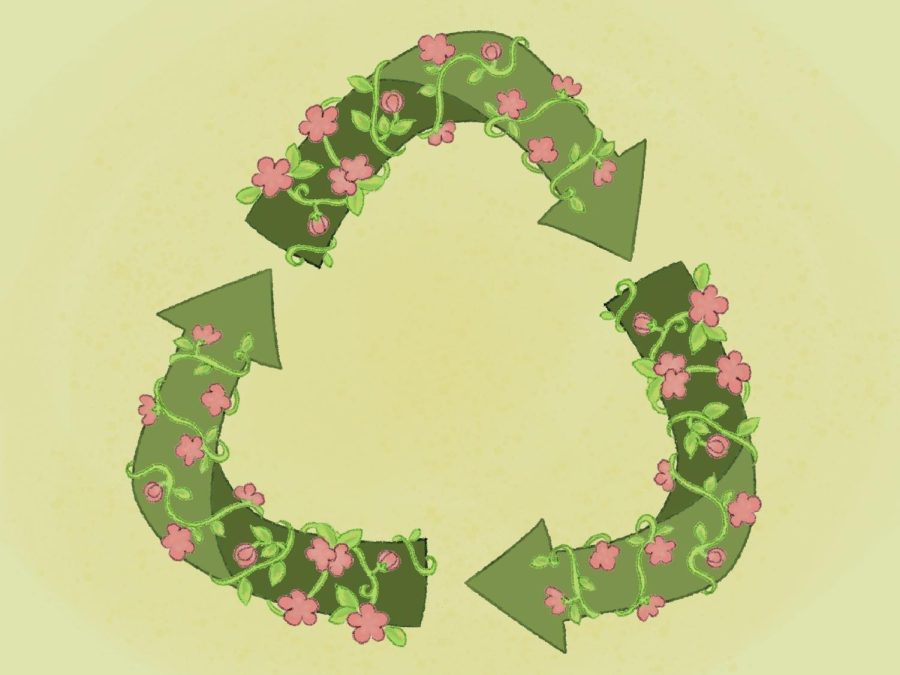How to Live With Minimal Waste on Campus
A guide to Mitty students which details the importance of living sustainably on campus and how to do so effectively.
April 23, 2022
In order to better take care of the environment, students can take actions to live with minimal waste both inside and outside campus. On a schoolwide level, Mitty has also enacted various programs to help protect the environment through on-campus actions. These precautions can create a difference in bringing the community one step closer to a cleaner, safer world.
Bringing reusable utensils from home rather than using the plastic ones provided by the cafeteria, reducing plastic usage by buying in bulk or using reusable containers, and correctly disposing of waste by using the garbage/recycle bins located all around campus are just some environmentally friendly lifestyle changes which help to reduce waste. Each of these seemingly miniscule changes greatly reduces Mitty’s carbon footprint as a school, especially with the use of recycling. Recycling works to reduce greenhouse gas emissions and the amount of energy used to create new plastic while allowing for the preservation of raw materials.
A passionate environmentalist, junior Sydney Reagan, described her environmental journey and how she has even completely cut meat out of her diet in order to benefit the environment. She suggests ways that students can further help reduce their carbon footprint: “If you have foods that you like, learn how to make them yourself with things that you know are sourced sustainably; buy things like produce bags so that you’re not using plastic bags at the grocery store.” She also has ideas for how Mitty as a whole can work towards becoming more environmentally friendly and waste free, such as implementing a dishwashing system so that students could use reusable plates at lunch instead of the harmful paper ones. She additionally suggests that even just removing the plastic cutlery from the cafeteria as a whole so that students are encouraged to bring their own reusable utensils would be extremely beneficial to maintaining minimal waste.
Even so, keeping campus clean is just a start to protecting the earth, wildlife, and one another. Mitty has made many adjustments to make campus more environmentally friendly. As Mrs. Janet Fenker recalls, “years ago, they put in the solar panels in the parking lots, and they upgraded a lot of the windows in the school.” By discontinuing the usage of plastic cups and straws, improving windows, and using less heat sources–which require a good deal of energy–Mitty has significantly reduced its carbon footprint. These methods enhance insulation on campus. Additionally, junior Nicholas Corral describes the impact Mitty’s Green Team had on installing recycling bins on campus: “The Green Team campaigned to get those blue lids installed.”
Mitty’s Green Team and Garden Culture Club work to address environmental issues, both on campus and in the larger community. Both groups focus on spreading awareness about climate issues to encourage others to follow similar actions. The Garden Culture Club cultivates Mitty’s garden and teaches others gardening practices. Mrs. Fenker explains how she has worked with the club to compost from the garden to limit waste on campus. Composting allows waste to stay away from landfills and stops it from releasing greenhouse gasses, which add heat to the atmosphere. Their work in the garden adds more nutrients to the soil, which are essential for flora to grow.
Through understanding and cooperation, members of the Mitty community can unite in their effort to preserve the environment by taking steps on a day to day basis. A few steps in the right direction may carve the path for caring for the earth.


